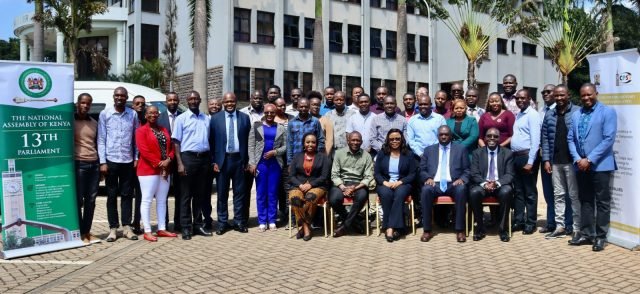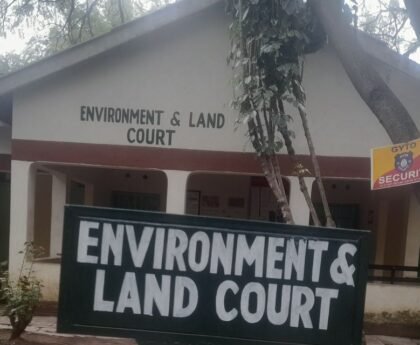The National Assembly Service is spearheading a critical initiative to bolster the quality of legislative reporting in Kenya through a series of training programs offered to the members of the Kenya Parliamentary Journalists Association (KPJA).
The first edition of the training took place two weeks ago and Friday morning when the Deputy Clerk, Mrs Serah Kioko officially opened another session for the second cohort at the Kenya School of Government in Lower Kabete, Kiambu County.
Through the collaboration with Parliament’s premier institute; the Centre for Parliament Studies and Training (CPST), journalists participating in this program are set to gain comprehensive insights into legislative procedures, budget formulation and ethical standards.
During the opening session, the Deputy Clerk underscored the pivotal role of the Fourth Estate in disseminating accurate information about parliamentary workings to the public.
Mrs. Serah Kioko commended journalists for serving as the vital bridge between the National Assembly and the Kenyan citizens.
Ms. Kioko reaffirmed Parliament’s unwavering support for journalists, highlighting this training initiative as a concrete step forward following resolutions made in discussions between National Assembly Leadership and Editors during their annual engagement in September 2023.
Quoting the words of the 27th U.S. President William Howard Taft, Ms. Kioko urged journalists to communicate with precision. “Don’t write so that you can be understood, write so that you can’t be misunderstood”, she appealed.
She noted that Parliament is an evolving institution, where in every session of Parliament will emerge the need to tweak the Standing Orders and House Rules to address emerging issues.
She pointed out the need for the journalists to constantly refresh their knowledge on the operations of Parliament to maintain accuracy in their reportage.
Her sentiments were echoed by Prof. Nyokabi Kamau, the Executive Director of the CPST who urged the Parliamentary reporters to be factual in their reporting, considering the high influence that the media has in shaping public opinion.
Mr. Duncan Khaemba, Chairperson of the Kenya Parliamentary Journalists Association, expressed gratitude to Parliament Leadership for their responsiveness to Editors’ requests, by ensuring tailored training initiatives that address the specific needs of journalists covering parliamentary affairs.
Areas the 2-day training is set to cover include, Standing Orders, House Rules, Access to Information during the law-making process, Functions of the National Assembly, Budget budget-making process and Media Industry Standards on Ethics.







